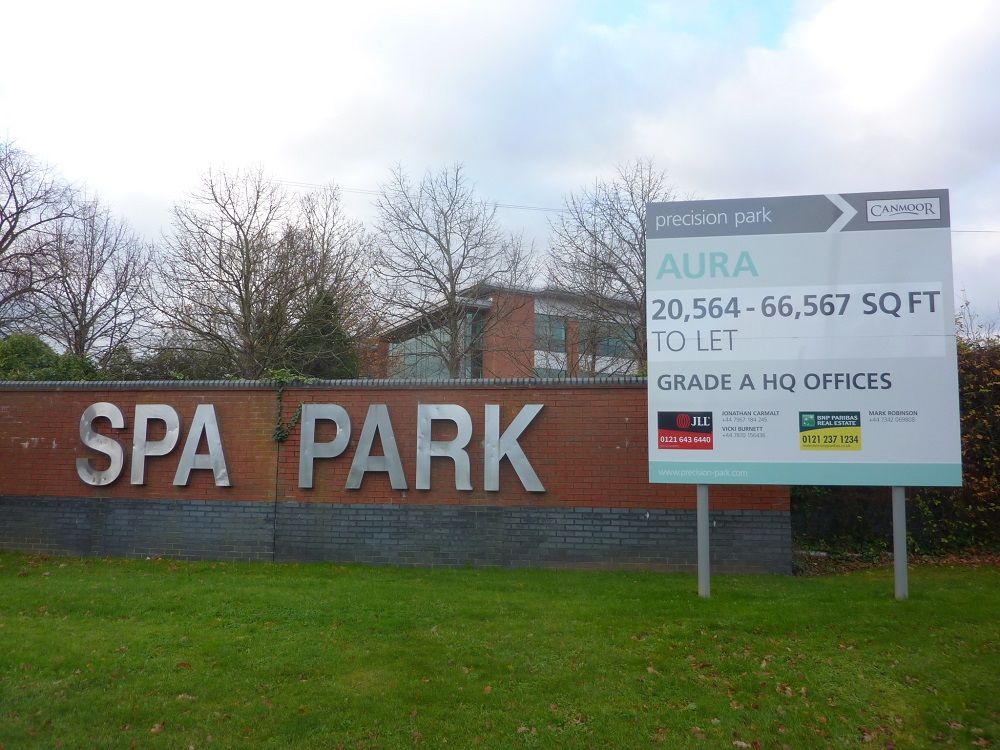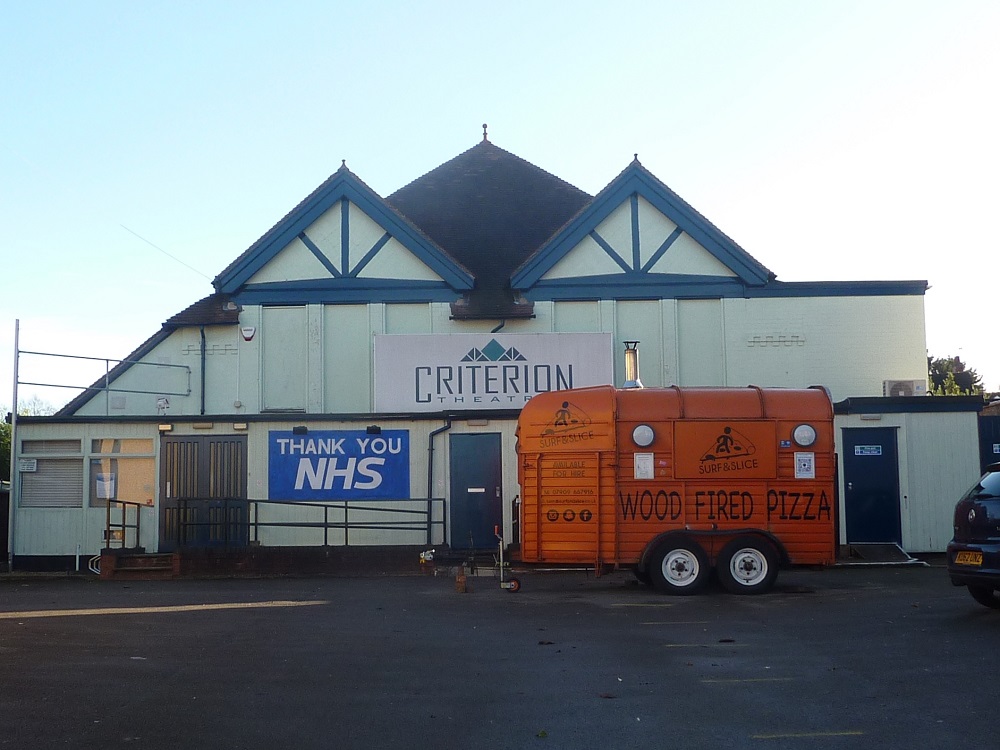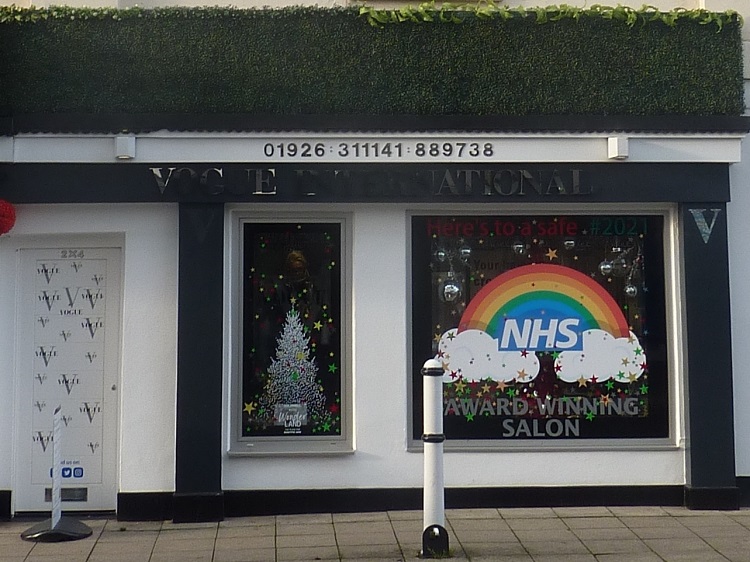A prosperous conurbation with a high proportion of middle-class professionals, now mostly working from home in mainly affluent housing estates. So it is unlikely that many businesses are likely to occupy already vacant office space. There is a risk that with too much of this office space available, the commercial property market could collapse, affecting the share investments and pension schemes of those middle-class professionals who are currently oblivious to bigger economic picture, though most are well educated enough that they should be. It is possible that some of that unoccupied office space could be converted into distribution warehouses for the new economy of home deliveries. But the problem is that there is more than enough of that warehouse space already available (see below). All photographs herein taken in November & December 2020.
Given that most of this office space is on purpose built business parks, with some on multi-purpose trading estates, where it is attached to a distribution centre (such as in one of the above pictures) it is unlikely to be suitably located for residential use. In the former case it is plausible that the entire business park could be demolished and replaced with residential dwellings. Or could those mainly low-rise offices become the new model for twenty-first century dwellings with little personal privacy, smart homespace for the smart city? The three-decade long era of the business park, which the late author J.G. Ballard regarded as a dystopian environment in itself, not so much coming to an end, as being adapted for the Global Reset Brave New World?
Warwick Technology Park, located to the south of the town, is one such that could become like this. The University of Warwick, whose main campus is on the south-western edge of Coventry, has an Innovation Centre with free office space on the technology park. There is also empty office space available at one of the other units. More to the point is that the other office buildings which were mostly occupied are now mainly deserted, as can be seen during the week by the lack of vehicles in the respective car parks and on the access road. Whilst the technology park has for the past few decades been in a semi-rural area, it is now being partly surrounded by new housing developments, so the conversion of many of its units to apartments could be absorbed into these.
Some former offices could end up as student accommodation if university courses return to tuition in person, rather than on-line. At Westwood Heath Business Park, south-west Coventry, there is already some empty office space, as one would expect. There is also purpose built student accommodation for the nearby University of Warwick (both pictured above). The business park, the university and its associated science park form what is, in normal times, a busy economic hub, with many middle-class professionals commuting from Balsall Common, Knowle and Dorridge (administratively part of Solihull), Kenilworth, Leamington Spa, Warwick and Stratford, to the point that this hub is essentially part of the same economic area as those (and all were in the same lockdown Tier). Coventry University Technology Park, located just south of the city centre, on the former Rolls Royce site, is another such hub, which also currently has empty office space available and which could go the same way.
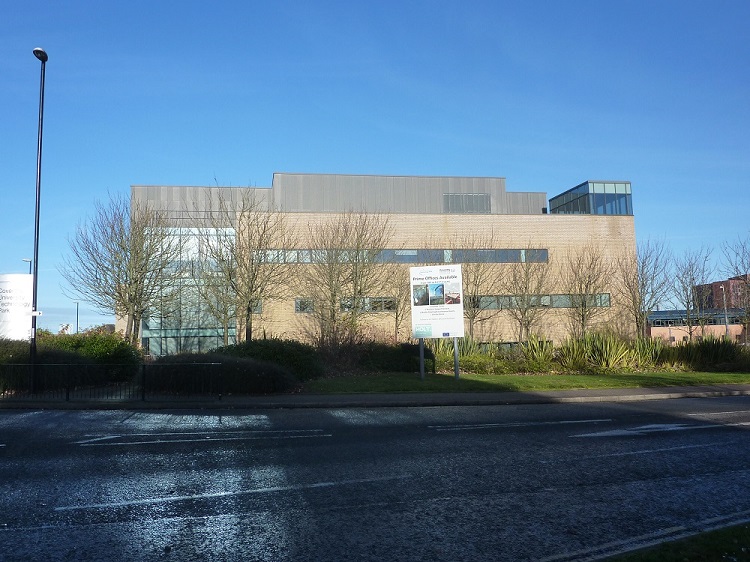
Reading all this, you might think that the transformation isn’t so bad and the notion of integrated work and home has been discussed in academic circles for the past couple of decades. The real issue to address is the lockdown pretext by which this is being brought about, rather than an honest agenda being put forward. In the meantime, many people who are working from home will discover the additional costs to their respective fuel accounts come the Spring; they may have already noticed the additional water costs when receiving a statement of account during the Autumn. Spending a penny costs money assuming that one flushes and refills the cistern, easy to overlook when not in one’s own dwelling. Added to that, many of the professional middle-class working from home adopted the gated community mentality, enjoying the lack of social interaction with clerical staff and others whom they consider to be ‘beneath’ them.
The lowest rung in the office caste system has always been agency ‘temps’, on short-term contracts, at best usually for six months, at worst on a daily basis. They get the labour-intensive dogsbody work with no guarantee that it will get any better; and for those employed on a daily or weekly basis, no annual leave entitlement. But ‘temping’ can at least provide work detail to put on one’s Curriculum Vitae, in the hope that better employment could arise. Judging by the picture below, taken in Leamington Spa in early November, one of the main recruitment consultants for office-based staff, Adecco, has recently shut up shop (though its website search facility has not been updated accordingly). This means that either that local demand has dried up for office-based staff, or the equivalent roles to be done from home; or that Adecco itself has decided to move to a mainly on-line based recruitment system, divesting itself of the need for as many of its own recruitment offices (though it still retains some elsewhere).
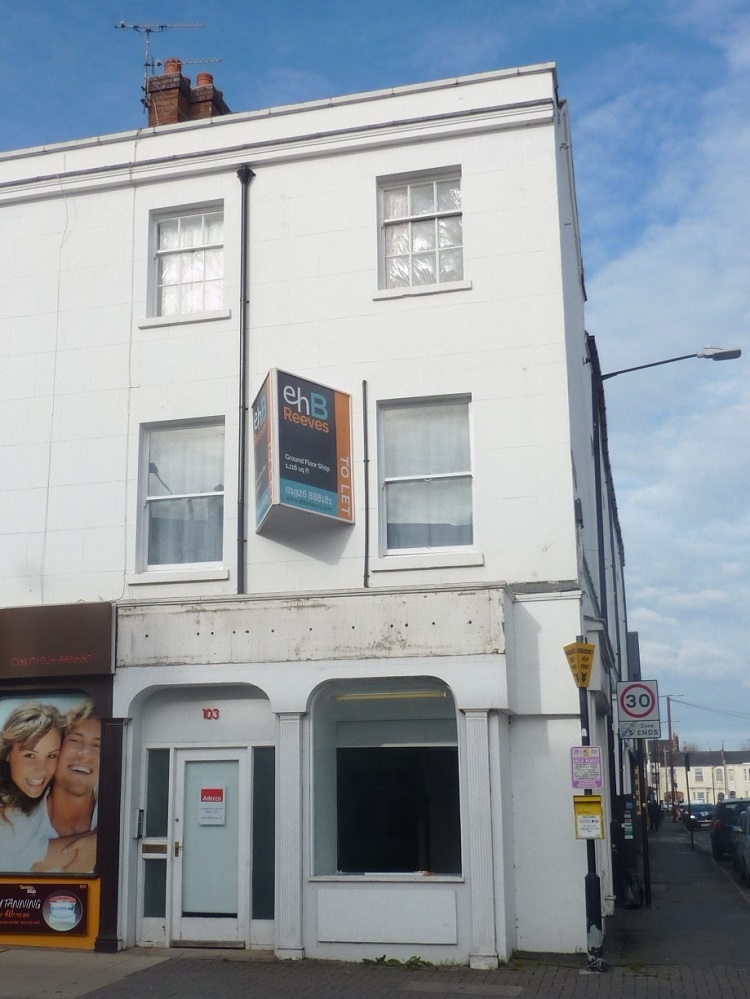
What is frequently overlooked about home work is that the costs are borne by the home worker, as well as the social isolation, which may suit some; though it is the informal networking and the interaction with people of different grades, different skill levels and different backgrounds – yes the diversity buzzword – more than the in-built hierarchy that holds the fabric of most companies together. It helps all employees to build up their social skills and to find out on the grapevine about what is happening elsewhere, via chance meetings by the coffee machines, the queue for the staff restaurant or in the gangways separating rows of hot desks. Maybe, for those in locations to benefit from it, conversations with others in the changing rooms provided for cyclists, or car sharing with someone in a different part of the company. Each of these helps to broaden one’s own knowledge of the company, which benefits the latter, if those running it want people to feel engaged and not merely as disposable contractors. Perhaps that is the agenda, as it gives the employer more flexibility and allows it to worsen employment terms and conditions?
One final point is that in order to pay off the huge amount of debt incurred by the lockdown, with its business support grants, furlough etc, it is plausible that many parts of the public sector – Ofqual for example which is based in Coventry, adjacent to the former Technical College at the Butts just west of the city centre – could be sold off to large private corporations that no longer have defined benefit final salary pension schemes for new employees, if indeed they ever had them. Working from home will make it more difficult for employees to take collective action to oppose such privatisations, something that their union, most likely UNISON, ought be aware of even if it supports the Fourth Industrial Revolution. It is even possible that if central government cuts back finance to local authorities, then some of them may go the same way. At the risk of making this a self-fulfilling prophecy, Coventry City Council for example, its assets, liabilities, income and expenditures, could all be transferred to a large private corporation that would freeze salaries and downgrade terms and conditions, including of course pensions. For the public sector lockdown-lovers, the Karmavirus would truly have struck.
